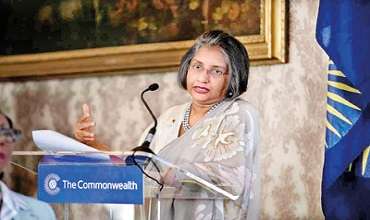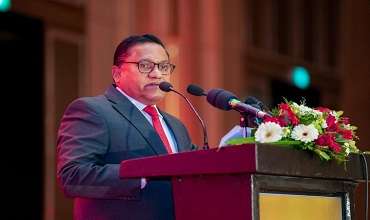Sri Lanka’s limited awareness of protecting its authenticity through Intellectual Property (IP) rights was discovered during a study by the World Intellectual Property Organisation (WIPO) on tourism and culture in the country.
A case study by the WIPO together with the Sri Lanka Tourism Development Authority (SLTDA) provided empirical evidence that only nine out of 30 hotels surveyed demonstrated some knowledge of IP rights. It is believed that this is probably due to a lack of awareness among domestic industries and the general public.
In addition, the study has found that there is an apparent shortage of home-grown creativity in Sri Lanka and as a result Sri Lanka lacks in creativity and innovation on a global platform.
SLTDA Director General Malraj Kiriella told journalists in Colombo on Monday at the Sri Lanka Institute of Tourism and Hotel Management (SLITHM) that this IP rights project was undertaken by WIPO for the first time in Sri Lanka from Asia alongside Egypt, Ecuador and Namibia.
This study is expected to increase awareness among stakeholders in the industry and policymakers on the use of IP tools in tourism-related economic activity.
It is the authenticity that the industry thrives on which WIPO believes could be protected like the Ayurveda system in Sri Lanka that could facilitate medical and wellness tourism.
This would ensure that Ayurvedic and traditional medical systems need standardization to make them more competitive and attractive to compete with more well-known Ayurvedic destinations like Kerala, the study has stated.
Moreover, the study notes that the vast untapped potential of rich natural, cultural and archeological heritage sites and museums may be realized by using IP tools while offering an extraordinary experience to international travelers and culture lover.
Branding cultural heritage sites by using an appropriate trademark or collective mark regime would add value to cultural goods and services used in the tourism sector, it was also stated.
The study also explained that IP rights could be used as collateral and IP-backed loan schemes that could be implemented for the benefit of cash-strapped, tourism-oriented SMEs.
In fact, it was noted that this would be worth considering in view of the fact that SMEs in the hotel sector are expanding and the number of boutique hotels, villas and home stays is on the rise in Sri Lanka. (Sunimalee)
You can share this post!
Content

An Attorney at law and his wife was shot dead in the car park of a super market in Akuregoda today evening.

Maithree Wickramasinghe, wife of former President Ranil Wickremesinghe, who was due to appear before the Criminal Investigation Department (CID) today to record a statement, has requested a two week period to provide her statement.

Read this week’s Sunday Times for your interesting articles






Leave Comments